Too often in today’s society, we are asked to suppress or deny our anger. Concepts like the power of positive thinking and manifesting our reality can work to steer us away from fully feeling and expressing our anger. Moreover, they may imply and impose upon us a dangerous level of guilt and shame for desiring to do so. The latter is something we likely already acquired in ample supply from our days in active addiction or dysfunction. Besides, where guilt and shame serve only to hurt us, anger can actually help us heal.1
Anger is often a demonized emotion. Many people fear it, not knowing how to appropriately confront, express or release it. Some simply try to deny or dismiss it. However, the vast majority of people—in active addiction, recovering or not—simply believe it to be a state of victimization. Even some specialists within the addiction treatment field see anger as a result of a lack of gratitude or an emotional expression of self-pity.
However, contrary to popular belief, it is possible to feel and express anger while simultaneously maintaining a sense of gratitude. But the awareness of lessons learned and the ability to see a silver lining does not negate the justification for anger. Moreover, to deny ourselves or anyone else the right to feel and express it is to engage in oppressive recovery—the opposite of helping and a setup for relapse.
Truthfully, anger is indeed a gift. It is an internal alarm that loudly sounds when personal boundaries have been repeatedly crossed or disrespected. Anger amplifies our voice when we desperately need to speak and be heard and wakes us from a potentially holistically comatose state. Additionally, it is a normal, expected, and necessary stage of grief, personal growth, and healing.
As such, it is vital to successful recovery for individuals and helping professionals to learn to allow and accept the gift of anger within ourselves and others. After all, it is not anger that destroys us or causes us to relapse. But, in fact, the suppression of it can easily do both.
Individuals with active addiction often become very defensive when confronted—even carefully—about their drinking or drug problem. In fact, many react with extreme emotional outbursts, as though someone has threatened their best friend or a beloved family member. The truth is, to an active addict, anyone attempting to confront the reality of their addiction is in fact bullying their closest friend.
An active addict’s drug of choice is not simply a substance. From their perspective, it is their security. The relationship they develop with drugs or alcohol becomes their most intimate and valued one. Therefore, people in their lives who were once cherished begin to feel abandoned and betrayed, as if they have been replaced by drugs or alcohol. Indeed, they have.
Unfortunately, if friends, family members or significant others voice these feelings, thoughts or experiences regarding this reality or attempt to rescue the individual from the throes of active addiction, they are typically met with varying degrees of denial and distortion.2 These defense mechanisms usually present with the active addict’s efforts to;
That is the very reason denial and distortion are indeed addiction’s most powerful bodyguards. They not only work to protect the addictive substances and addiction itself. They also formulate such an insane, dysfunctional experience that those who become concerned and wish to interfere or intervene are forced to either maladapt and become increasingly codependent—a condition which requires recovery as well—or back off and simply let go.
Though the latter is always easier said than done, it is the necessary step each concerned individual must take in an effort to protect their own sanity and overall wellness. Aside from an organized intervention in which at least one helping professional is present to facilitate and mediate, there is nothing more that can be done to save an active addict from themselves. To prevent becoming an enabling part of the problem or an enmeshed piece of the dysfunction, loved ones must quickly employ their own empowering entourage; detachment and disengagement.
Perfection is something for which many people strive. Yet, perfectionism is—ironically—a factor in active addiction and, for those of us in recovery, can easily lead to relapse. Why? Because the driving urge to achieve perfection is the equivalent of trying to please everyone, everywhere, at the same time. It proves disappointing to everyone—namely, ourselves—and ultimately leads to dysfunction.
Perfectionism manifests in many forms and varying degrees, but can invade our minds and distort our self-perceptions to damaging and detrimental extremes.3 Any perverse demand of perfection placed upon us by others—including but not limited to our parents—potentially leads to addiction and other forms of mental illness. To impose perfectionism on ourselves has equally devastating consequences, as well.
Unfortunately, many of us arrive in recovery thinking we have to do recovery, perfectly. But perfect recovery doesn’t exist. In fact, even successful recovery is not about perfection. It’s about progress—daily progress. That’s why we hear handfuls of wisdom which reiterate that point; “One day at a time,” “Keep it simple,” “Keep coming back. It works, if you work it,” and so on. These phrases were devised by recovering addicts and alcoholics who likely struggled with perfectionism and—more significantly—the guilt and shame that followed anything less than perfect.
Guilt and shame result in pain which, without healthy coping skills, cycle us into negative behaviors and consequences. They are our worst enemies in recovery, and they are the spawn of perfectionism. And, in order to achieve success in recovery, we must break our own cycle of pain by denouncing the desire to be perfect and, instead, simply aspire to make progress.
Whether the steps are baby steps or giant leaps, recovery requires only that we focus on our forward movement, rather than the steps we will—no doubt—take backward. We are addicts. Yes. But, we are in recovery, which means we are healing, and it is a process; not an overnight procedure. Besides, we cannot forget, underneath our disease, we are also human.
Almost every holiday song, greeting card and festive, seasonal sentiment we hear or see, this time of year, mentions peace and joy. The two have seemingly become synonymous with the holiday season. Of course, no one can argue the collective desire to experience both, at least once a year. But do we really have to wait until December to make peace and joy our focus?
The answer is a resounding no.
Those of us in recovery for addiction, codependency, ACOA, and more are aware of the chaos and misery behind us. We know the self-orchestrated drama, heartache and failure tied to active addiction and dysfunction. And, though we had a glimmer of hope, the holidays never saved us. In fact, they typically became opportunities for more victimization, manipulation and self-sabotage.
Recovery, on the other hand, has given us chances to understand and experience serenity—inner peace and joy—on a daily basis. We have learned and are continuing to acquire life skills and coping mechanisms that grow us, rather than stunting our personal development and thwarting our success. And, as a result, we can face the holiday season, better equipped to deal with our own ghosts of Christmas past.
So, maybe it’s time we extend the holiday sentiment of peace and joy far past December. Perhaps we—in recovery—need to encourage each other to experience these terms as states of being, rather than simply fleeting emotions. That isn’t to say we should learn to wrap our daily struggle and pain in holiday lights—so to speak—and pretend all is right with the world. In fact, just the opposite.
Rather than rescuing ourselves with happy holiday tunes and the bells and whistles of Christmas—or any other day—we should learn to sit with our pain, peacefully and joyfully. More to the point, we must become comfortable in the silent nights, befriend and fall in love with ourselves—everything about us. The good. The bad. The ugly. And, when we do, we will know—continuously and consistently—the true meaning and experience of peace and joy.
The holiday season usually has us racking our brains to think of the best gifts to give our loved ones. But what about ourselves? Aren’t we our loved ones too? We certainly should be. In fact, that is a very important aspect of successful recovery—loving and honoring ourselves.
Many in recovery are in the process of not only discovering and respecting their personal adult needs, but also those of their inner child. Much of that newfound journey is the result of being forced to grow up too fast. For some, the need to do so may simply originate from a lack of nurturing in childhood. Regardless of the reason, focusing on the child within us is an excellent addition to our recovery regimen.
So, this year, add yourself—the adult and child version—to your holiday gift list. Here are 20 suggestions, for those of us who find even ourselves difficult to shop for:
Whatever you choose to do, whether it is listed here or not, give yourself something special this holiday season. It’s not like it will be the first time. Recovery is one of the greatest gifts you have already given yourself and your inner child—even if the latter is not your chosen path. But it shouldn’t be the last gift you receive from you. And, for the record, it wouldn’t be a bad idea to add a heartfelt card too.
Contrary to what some believe, self-love does not equate to selfishness. In fact, learning to love oneself often prevents it. After all, to fully love others, one must first love oneself.
With regard to active addiction, love of self is typically completely lacking. The reasons vary, but the reality is the same and it is one of chronic self-sabotage. In other words, active addiction is a means of self-destruction, not an exhibition of self-love.
For these individuals, making a decision to seek help is the first step toward self-preservation and self-love. And, for the record, since active addiction is the acute situation, that particular step is most vital. It must be taken before any other efforts toward self-care or love of self can be employed.
That said, once treatment for active addiction is sought, the biggest and hardest step has been taken. As such, those in active recovery have already moved from a place of self-destruction to one of self-care.4 And, with that in mind, congratulations and a moment to reflect on that uplifting reality are in order.
But, as we know, the journey doesn’t end there.
For that reason, it is important to find ways to continue to practice self-love throughout recovery. Love of self is vital to relapse prevention and key to successful relationships, as well as holistic wellness. And, as with recovery, the practice of self-love is one we can employ one day at a time.
Let the first day be today by employing these five ways to love yourself:
Get rest and relaxation. Sleep is necessary for holistic health. Physical, emotional, psychological and spiritual health rely on rest and plenty of it. Relaxation is also key to overall wellness. As such, making sure you get a good night’s rest (ideally, 8 hours) or find time to nap in an effort to compensate for any sleep lost due to situations out of your control is first on the to-do list. Finding ways to relax—taking a hot bath, going for a walk, yoga and meditation, etc.—throughout the day needs to accompany this step, as relaxation leads to a restful mind and body.
Take time for mental health. Whether you can afford to take the day completely off—no school, no work, no appointments of any kind—and enjoy a mental health day, or simply find an hour to devote to doing nothing, it is necessary to take time to let your mind unwind. Zoning out to music, watching a beloved movie, reading a book, etc., are all great options for “vegging out” and giving yourself a break from the stressors of everyday life.
Get moving. Exercise gets the blood flowing, stagnate energy moving and endorphins kicking in. All of the above are vital to overall wellness. It keeps you physically healthy and typically makes you feel better about yourself, all while relieving stress and promoting relaxation. Additionally, exercise is prevents and effectively helps reduce depression and provides a great distraction when and if cravings become an issue.
However, as with anything else, too much of a good thing is a bad thing. Distraction is a temporary fix, not a permanent solution. As such, remember; the purpose of exercising is to maintain holistic health as a practice of self-love, not self-destruction. If you’re reasoning is based on self-loathing or insecurities, be sure to address this with a helping professional. Exercise bulimia is a dangerous reality and should not be taken lightly.
Get moving, but don’t get a substitute addiction.
Feed your body and mind. Food is necessary for survival. Healthy food is vital for quality of life. Making the time to prepare or acquire a healthy meal, at least three times a day, with healthy snacks throughout the day improves if not ensures physical and mental health.
Food for thought is also necessary, especially with regard to successful recovery. Employing daily affirmations, positive quotes and so on at the start or end of the day is a great way to feed the mind and nurture the self.
Get quiet. Quiet time is something we needed as children, and that does not change when we become adults. Getting quiet means turning off all background noise—no tv, radio, computer, video games. Nothing. Complete silence. Whether you choose to get quiet via the practice of meditation at a local yoga studio or decide to do so by simply sitting in the silence of your own home, finding ways to get quiet offers opportunities to sit with, face and lovingly embrace yourself.
These five steps don’t require much extra effort. Sleeping and eating is something we should already be doing, so employing the proper amount and method should be simple enough. However, if there is resistance to any of the above, that is not an abnormal experience. If self-love came naturally to us, addiction would have never been an issue.
The truth is self-love is not easy for the majority of individuals, mainly because it is not something we are taught. It’s something we generally have to teach ourselves. And, more to the point, it requires us to be our own best parent—setting boundaries and instilling norms and expectations we don’t always initially like. But, as with our need to access treatment and get recovery, the need to further our journey of self-love is a reality and one we will find gets easier and more fulfilling as we move along.


We’re committed to fostering unbroken recovery. We provide treatment for addiction and dual diagnosis that is both life-long and life-changing. At Stages of Recovery, our continuum of care helps individuals struggling with addiction become the people they were meant to be.
If you’re looking for a safe recovery program for yourself or someone you know, there is hope. Call us today.
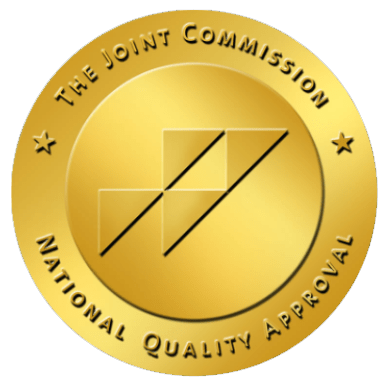
©2021 Stages of Recovery All Rights Reserved | Privacy Policy | Site Map |
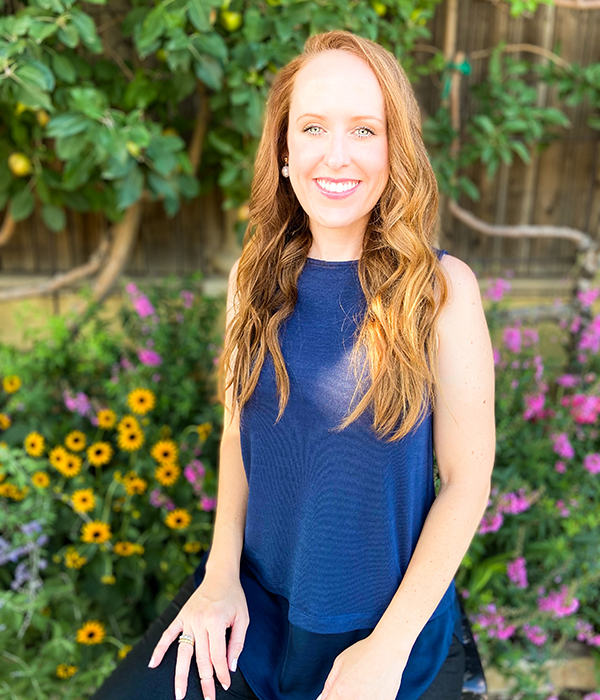
Cari has worn a variety of hats before coming to Stages of Recovery – in a past life, she was in advertising sales, association management, corporate event planning and property management. Hailing from West Texas, Cari grew up in Midland before attending Texas Tech University. Always creative and an over-achiever, she graduated magna cum laude with a BA in Advertising before moving to Florida for the next seven years. A true Texan at heart, Cari returned to the Lone Star State and pursued a career in property management where she earned national designations in leasing, apartment management and obtained her real estate license. In 2015, she met Stages of Recovery owner Stephen Medley by chance. Recognizing her style and resourcefulness, he challenged Cari to head up the renovation of the men’s Transitional Housing properties in Lubbock and Waco (check them out – they look pretty great if we say so ourselves!). Given her knack for organization and execution, the Stages family officially welcomed Cari in 2020 to assist behind the scenes in administration, operations and marketing – she’s here to make us look good! In her spare time, Cari’s pastimes include cooking, interior design and doting on her Scottish Folds – Birdie and Apollo.
Words to Live by:
“Why cope when you can eliminate?”
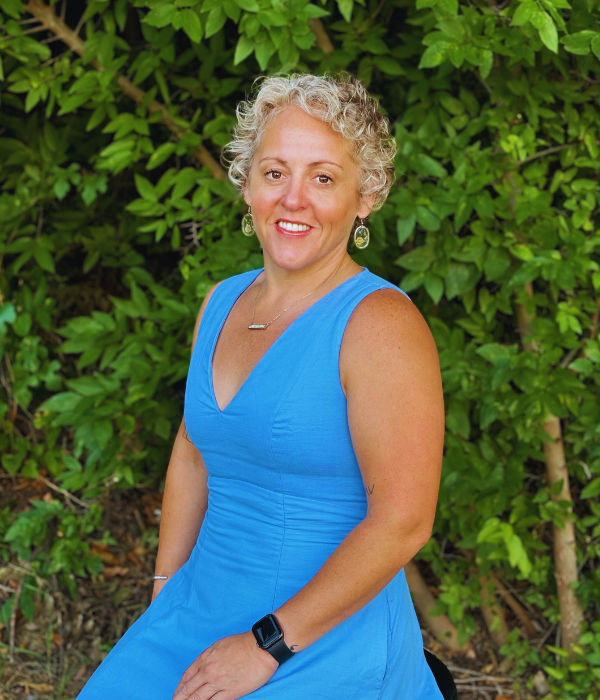
Recovery from substance abuse has been part of Dawn’s journey since surrendering to her higher power and getting sober June 21, 2018. With multiple convictions, 5 years of consequences to own up to with the justice system and suitcases of past trauma to unpack, she’s never let it stop her from loving herself and others. Dawn is the proud momma of two amazing girls and her fur baby Chloe.
She’s on fire to be of service to others and smash antiquated stigmas surrounding addiction and mental health. When asked, “why do you do what you do?”, her response is “to pay forward the grace that’s been extended to me and provide a voice to those that haven’t found theirs…yet!”
Dawn recovers out loud and is a huge believer in health, fitness and wellness being a pathway to recovery. She has obtained her CrossFit Level 1 Trainer credential and is currently training to obtain her RSPS certification.
“There are two ways of spreading light: to be the candle or the mirror that reflects it.” – Edith Wharton
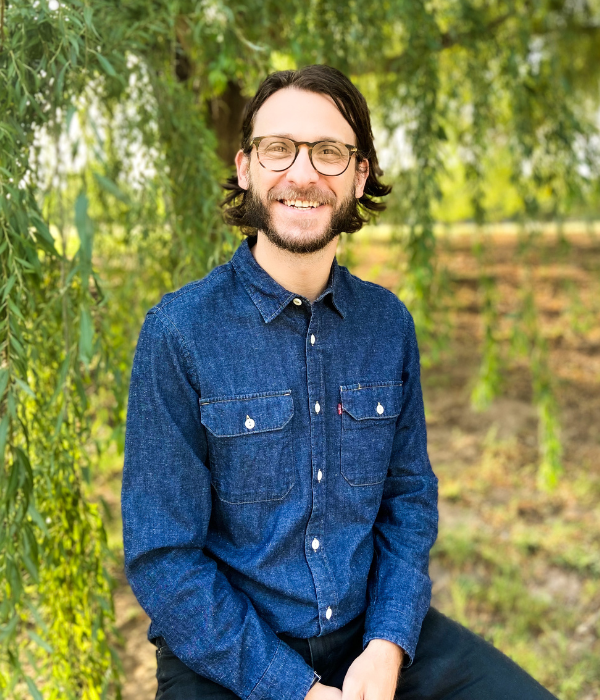
Jacob graduated with his M.Ed. in Clinical Mental Health Counseling from Texas Tech
University in May of 2021 and has been working towards his Ph.D. in Counselor Education from Texas Tech University. As a counselor, Jacob operates from a Humanistic perspective, utilizing Existential and Person-Centered techniques.
Since beginning his journey in becoming a counselor, Jacob has strived to help people find the meaning in their lives by helping them overcome addiction and embrace a life of recovery.

Check back soon to learn more about Tony!

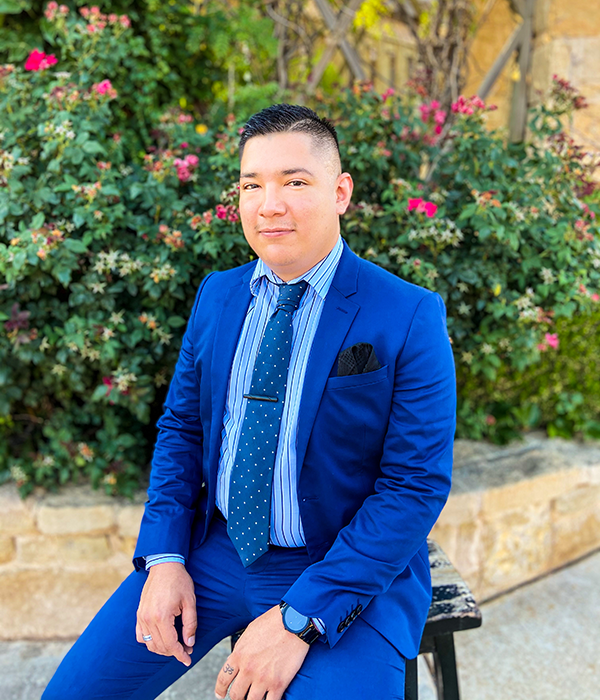
Matt obtained his bachelor’s degree in Addiction Counseling in 2017 and his master’s in 2020 in the same area of study. In 2020 Stages of Recovery welcomed him as an intern which quickly turned into a part-time then full-time position, assisting with groups and transitional housing at the men’s properties in Lubbock. Matt began his journey in counseling because he wanted to help people struggling with the disease of addiction, by being a role model and helping them realize the potential they have in recovery.
Seeing people succeed in recovery and change their lives for the better fuels Matt to continually offer support and leadership to the recovery community here at Stages.
“I have experienced the joy and peace that comes with sobriety and want to share that and show others that there is a way out of the darkness that is addiction.”
Favorite quotes:
“Pain is certain, Suffering is optional.” Gautama Buddha
“Don’t compare yourself with other people; compare yourself with who you were yesterday.” Jordan Peterson
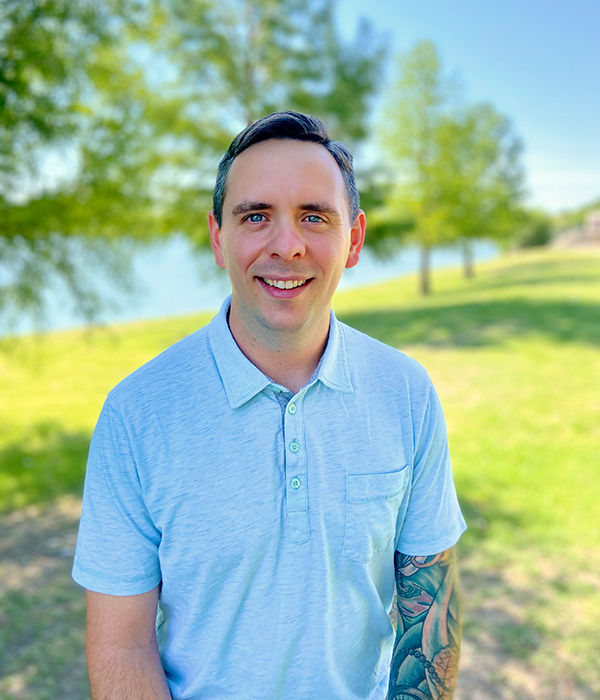
Dustin is in long-term recovery and has been sober since May of 2011. He is from San Antonio, TX and is married to his lovely wife, Emma. They moved to Lubbock, TX where Dustin attended The Center for Collegiate Recovery Communities at Texas Tech University. Upon Emma’s graduation from Texas Tech in May of 2018, they relocated to Moore, OK, where Dustin graduated in 2020 with his bachelor’s degree in Social Work and recently achieved his master’s degree in Social Work from The University of Oklahoma. Dustin is also the recipient of the National Collegiate Recovery Student of the year award in 2019 for his tireless work building a recovery space on campus for students. Dustin was also the BSW student of the year in 2019 as well as a two-time recipient of the Anne and Henry Zarrow Social Justice Award for 2020-2021. Dustin has sat on numerous boards of directors in the Oklahoma community. His passion, education and ability to help others gain a life of purpose and meaning are just a few reasons why we are excited to have him on our team!
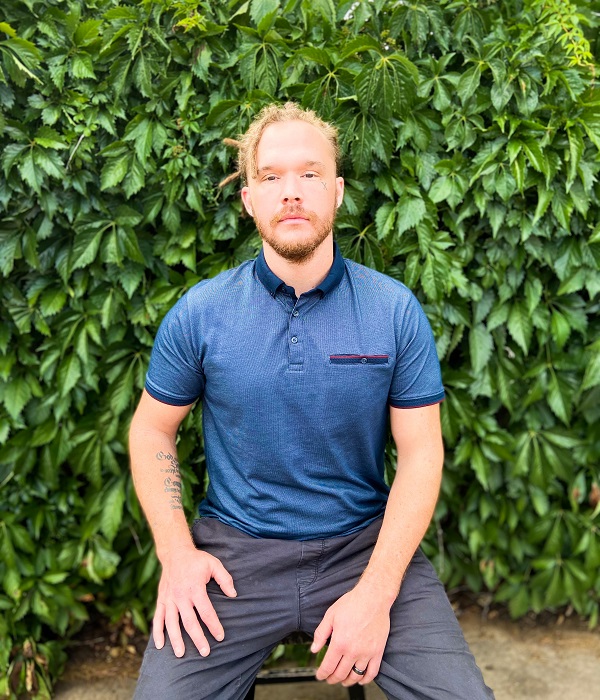
Mechie went through Stages of Recovery 10 years ago with the dream of one day obtaining a degree and providing for his daughter. He had his daughter at five months sober and started working as a janitor at Texas Tech University in 2011. After discharging from Stages of Recovery, Mechie received a scholarship at Texas Tech and The Center for the Study of Addiction and Recovery. Not only did he receive his Bachelor’s degree from Texas Tech, he pursued his Masters in 2014. Mechie has committed his life to helping others and lives by the motto that he doesn’t care about their feelings, he cares about their lives. His humble roots, passion to help others, and commitment to being his best self is what we at Stages of Recovery embody! We are ready to make shock waves in recovery with this guy!
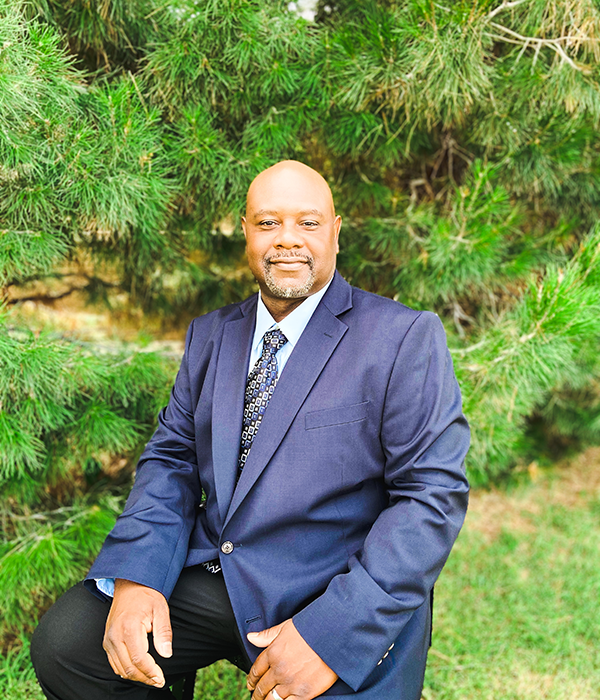
Tommy was raised in Tulia, Texas and is married to his first love, Rosalind. They are volunteers for the state of Texas’ program called “Twogether in Texas”, where engaged couples undergo an eight hour workshop. They dedicate their time as a couple to marriage ministry and outreach in the community. Together they have six children and twelve grandchildren. Tommy has been with Stages of Recovery since 2018. He has a Master’s in Addictions Counseling. He is currently in the process of obtaining his LPC Associate and LCDC licenses. Tommy began his recovery in December 2001. He’s driven to give back to the recovery community after seeing so many friends and family who suffered from addiction lose their lives. His journey hasn’t been easy and if he can help the next man, woman, boy or girl choose a different path than he did, it fills his heart with joy.
Favorite Quote
“The true test of a man’s character is what he does when no one is watching.” John Wooden

Check back soon to learn more about Kayli!
Steve Richardson is a husband, father, and grandfather. He is also a man in long-term recovery and has a son in recovery as well. Through this journey, few would find it difficult to relate to Steve, making him especially adept at developing relationships with clients and their families. Recovery is so central to his life, that at the age of 52, Steve closed a successful consulting firm and returned to school to become a licensed clinical social worker, as well as a licensed chemical dependency counselor. His education includes a BA in Literature from Texas Tech University, a BS in Psychology at Tarleton State University and a MA in Social Work at the University of Southern California. Along with his extensive education, degrees and training, he brings 50+ years of life experience to every individual, family and group session. Steve believes that no one’s illness should dictate the quality of their future and that their pain and struggle are real. Every addict’s life matters and there is always hope. In other words, no one’s future is carved in stone. His certainly wasn’t.
Favorite Quote
“There are only two ways to live your life. One is as though nothing is a miracle. The other is as though everything is a miracle.” Albert Einstein

Stephanie moved from her hometown of San Antonio to Lubbock, TX in 2011 to begin a long journey toward self-growth and healing. She graduated from Texas Tech University with Bachelor degrees in Psychology, and Science in Human Development and Family Studies. After a year of work in the chemical dependency field, Stephanie went on to graduate with a Masters in Couple, Marriage and Family Therapy (with a focus in Addiction in the Family) in 2018. After receiving support from countless loving individuals during her struggle with mental illness, it has been Stephanie’s mission to extend the same level of compassion and care to her clients. She believes counseling is a way for individuals, couples and families to share their experiences and pain, and find ways to transform their darkness into light. Stephanie is especially interested in working with adolescents and adults struggling with addiction and substance abuse, at-risk populations, and couples/families. She works from a systemic perspective with all clients; meaning she gathers information about all areas of an individual’s life to assess needs and the effects that each area may have on the others. Looking through a systemic lens offers the ability for individuals to create lasting transformations through self-awareness about their unmet needs in multiple areas. In her personal life, Stephanie spends most of her time with my husband and their five goofball dogs. She’s a PokemonGo, Disney, and Taylor Swift enthusiast and she enjoys creative outlets including make-up artistry, painting and interior design.
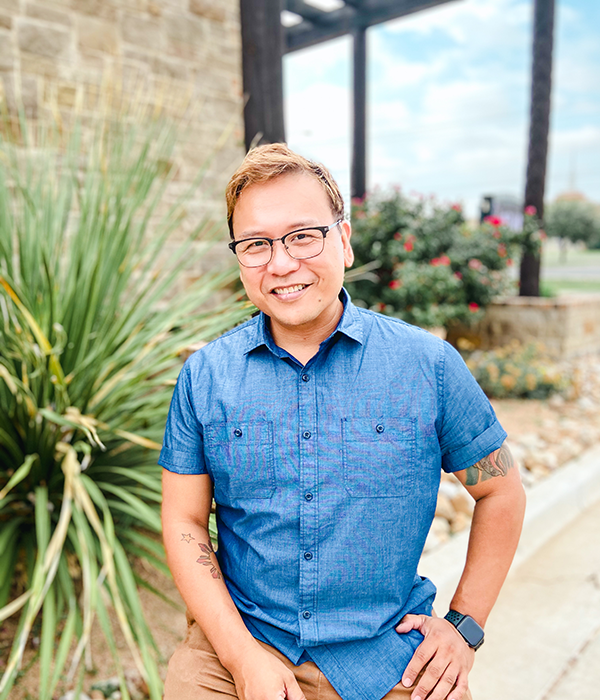
“Mel” is originally from Angeles City, Philippines. He graduated from Lubbock Christian University with a degree in Social Work. He joined Stages of Recovery in 2020. Mel has over 20 years in Residential inpatient services and is known for his willingness to go above and beyond for others. He is skilled in Mindfulness and serves with a true heart of service. Like many, Mel has had many experiences and challenges in his life that have equipped him to keep pushing forward. These experiences allow him to make deep and meaningful connections with those he helps. When working with clients, he champions the mindset that every human needs three things: TO BE HEARD, TO BE SEEN, AND TO HAVE A SENSE OF PURPOSE. Mel’s motto in life is simply to “Be you” and to not allow anyone or anything to deter you from this.
Favorite Quote
“Be like water making its way through cracks. Do not be assertive, but adjust to the object, and you shall find a way around or through it. If nothing within you stays rigid, outward things will disclose themselves. Empty your mind, be formless. shapeless, like water. If you put water into a cup, it becomes the cup. You put water into a bottle and it becomes the bottle. You put it in a teapot, it becomes the teapot. Now, water can flow or it can crash. Be water, my friend.” Bruce Lee
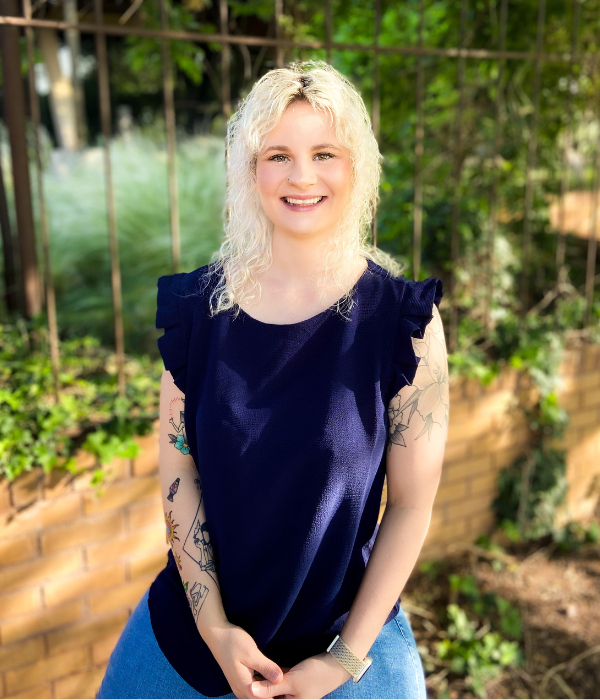
Averie is a graduate from Texas Tech University with her Bachelors of Social Work in 2018 then in 2020 with her Masters of Social Work. Averie has been working within the area of addiction and recovery since August of 2018 when she started her Bachelor of Social Work field practicum with Stages of Recovery. Averie decided to work with addiction and recovery because of her passion for seeing people better themselves. Averie believes everyone can change, and she shows a clear love for being part of the process and empowering individuals along the way. Averie has been in recovery herself since October of 2017. She has two adorable dogs, Rockie and Chewie. In Averie’s free moments, you can catch her spending time with her partner, watching reality TV, or playing video games.
“I love to get in the trenches with the people that I work with, fight with them for their change. I believe anyone, no matter what they have been through, has the ability to overcome.”
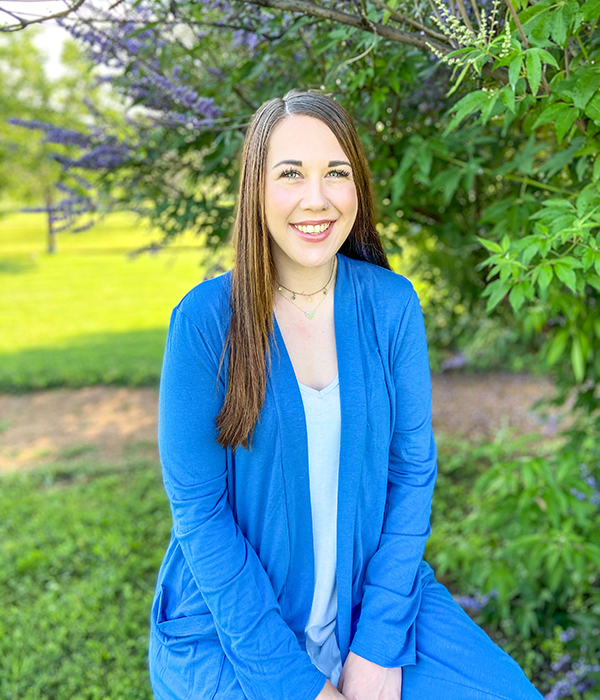
Ashley Loveless, Licensed Master Social Worker, earned her Bachelor of Arts and Sciences in Social Work and Spanish from Texas Tech University in 2014. Ashley proceeded to obtain a Master of Social Work from Our Lady of the Lake University in 2017. Ashley has been a licensed and practicing LMSW since 2014 and has worked in many private and non-profit sectors including administrative roles, hospice roles, sexual assault counseling, sex-trafficking rescue/counseling, and mental health. She began her career as a Correctional Mental Health Social Worker at Montford State Psychiatric Prison/Hospital in Lubbock, TX in 2014. She has been employed part-time with Stages of Recovery since February 2019 as a Mental Health Counselor, co-leading early recovery groups and taking on individual clients. Ashley works full-time at Hospice of Lubbock as a medical social worker. Ashley and her husband Paul, have four daughters, Sophie, Harper, Sawyer, and Bowen and a dog named Lincoln. Ashley enjoys traveling, yoga, baking, and adventure.
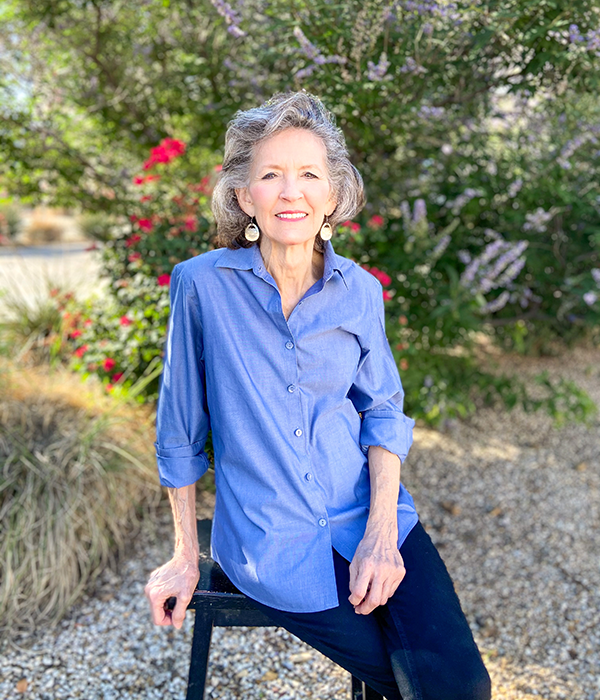
Lynn has been an LPC for nearly eight years. By volunteering at the Greater Dallas Council on Alcohol and Drug Abuse, she became interested in addiction and recovery. Her practicum in graduate school included working with veterans and women in recovery through art therapy techniques. Lynn is a member of the National Association of Alcoholism and Drug Abuse Counselors and the West Texas Counseling Association. Along with her Marriage and Family Master’s degree, she holds a Master’s degree in art therapy. Lynn’s unique background allows Stage’s clients to introduce and foster creativity throughout their personal recovery. Lynn is a former classroom teacher, grades 1-8. She is certified in all-level art and counseling.
Favorite Quote
“Imagination rules the world.” Napoleon.
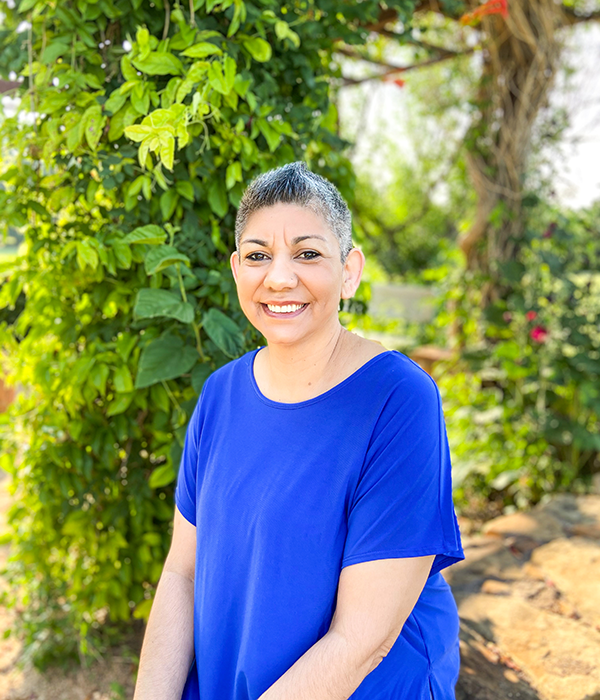
Melissa currently works as a Licensed Chemical Dependency Counselor-Intern and as the Administrative Director at Stages of Recovery. Along with working at Stages of Recovery, she works with adolescents in the Parent Empowerment Project. She has worked in the recovery field since 2015, with a focus on substance use disorder and helping families heal. She pursued work in addiction because of her academic, professional, and community involvement, as well as her personal experiences. Melissa’s work has allowed her to dive deeper into the field of addiction and recovery and to expose her genuine love for the betterment of other’s lives. Currently, she is a doctoral student at Northcentral University and pursues her degree as a Doctor of Philosophy in Marriage and Family Therapy. Melissa received her bachelor’s degree in Community, Family, and Addiction Sciences at Texas Tech University and her master’s degree in Couple, Marriage, and Family Therapy at Texas Tech Tech. She was a member of The Center for Collegiate Recovery Communities at Texas Tech University.
“It takes one person to believe in you.”
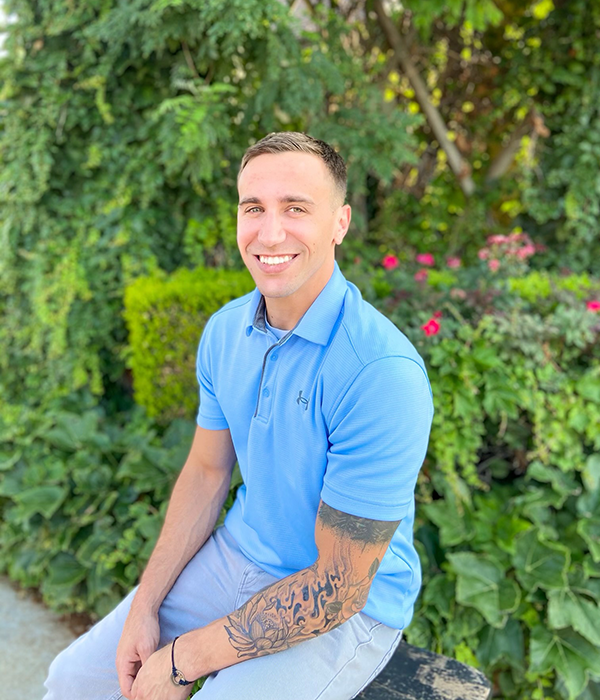
A Pennsylvania native, Anthony left home when he was 21 during an active addiction – he thought he had it all figured out. Anthony moved from Wyoming to Montana to Colorado. His addiction progressed, causing him to neglect priorities like relationships, rent, and job opportunities. Eventually, Anthony found himself homeless and broken spiritually, emotionally, and physically. Anthony researched a treatment center in the Dallas area that was able to fly him down to Texas. He was a client there for 57 days. While at treatment, Anthony heard of The Door Sober Living and the recovery that Lubbock had to offer. Anthony took a greyhound to Lubbock and in 2012, Anthony stayed at The Door for six months before moving out. Without The Door’s accountability and structure, he fell back into addictive behavior for several months. Anthony checked into the Ranch at Dove Tree, where he stayed for 30 days. Upon successful completion, Anthony returned to The Door Sober Living on May 19, 2013. This time, Anthony signed a one-year agreement and expressed great willingness to maintain sobriety. In July 2014, when a previous house manager moved in with his fiancé, Anthony was asked to step up and take on his duties. This then, Anthony has grown into the Client Relations House Manager. His continued dedication to recovery and belief in the Stages of Recovery program as a whole led to an opportunity in 2017 to become the fourth owner of Stages.

Stephen “Medley” is the founding owner of Stages of Recovery, Inc. and The Door Sober Living Community. A visionary with a passion to help those in recovery, he saw a need in the community and decided to take matters into his own hands. Medley has over twenty years of recovery time. After getting clean at the age of nineteen, he knows firsthand how to show many of our younger clients that it is still possible to have fun in recovery. Medley graduated from Texas Tech University as a member of the Collegiate Recovery Community at the Center for the Study of Addiction and Recovery with a bachelor’s degree in Business Administration. Medley is the leader of the company and an inspiration to all staff members. Medley understands the power of knowing why; why we made poor decisions and the importance of knowing and remembering why we don’t want to make them again.
“I’m passionate about helping individuals realize and reach their dreams by focusing on their WHY.”
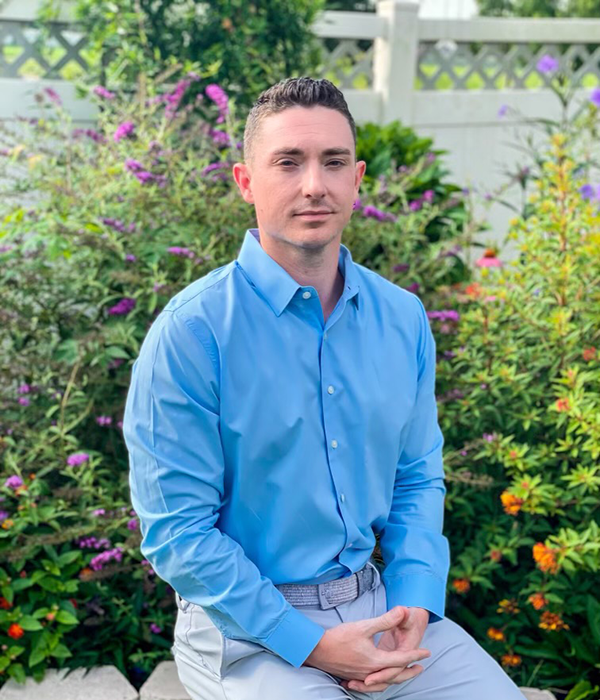
Stephen O’Dell has been with Stages of Recovery for over 12 years. He has served in many roles as the company has continued to grow. He is currently one of the owners and the CFO. He also does direct business development and admissions for those in need of services. Stephen’s time with Stages began when he was a client learning how to live his new life in Recovery. He began his journey at the young age of 18 with big dreams and goals. Stages of Recovery provided him with the tools, guidance, and community needed to build a life worth living. Stephen later achieved his bachelor’s and master’s degree in Personal Financial Planning in 2016 and 2017 from Texas Tech University, with the help of a scholarship from the Center for Collegiate Recovery Communities (CRC). He went on to get his CFP® Mark (Certified Financial Planner) in 2018. Stephen’s unique personal and his extensive professional experience makes him a great fit to help you and your family navigate the complicated process of finding help for your loved one in need.
Many people think of Wealth as a monetary value. O’Dell defines Wealth as “The relentless pursuit of a desired lifestyle, and the strategic maintenance of that lifestyle”- Stephen O’Dell. With the help of Stages you and your family can begin to define what your goals are and begin the process of healing together.
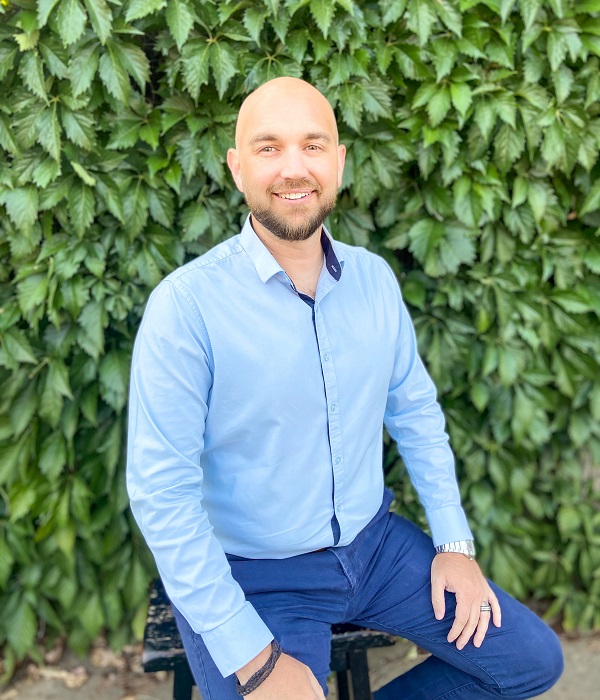
Cole and Medley founded The Door Sober Living Community together. Cole is the details behind the program. As Program Director, he conceived and implemented The Door concept and has written multiple grants for this program and others. He is talented at blending the nature of business practices into the field of social services. Cole was born and raised in Lubbock and has been in recovery for over ten years, proving that you can get clean in the same town you live in. He is a proud graduate of the Lubbock County Drug Court program and advocates that Drug Courts work. He holds a Bachelor’s and Master’s Degrees in social work from Texas Tech University. Cole has an inspirational wife, Veronica, and two beautiful children, Eliana and Wyatt. His focus in the company is to make sure that the activities stay true to the spirit of recovery and the mission and vision of the company.
“I’m passionate about guiding people out of their mental sense of lack and into freedom.”
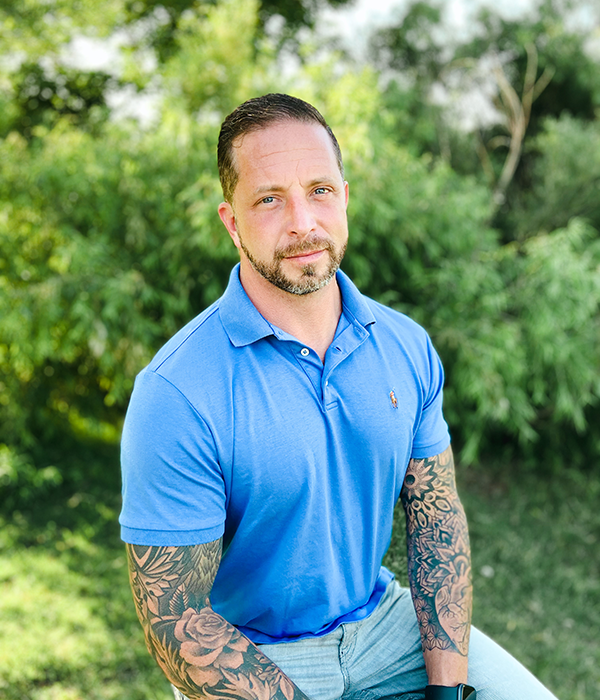
Stephen “Medley” is the founding owner of Stages of Recovery, Inc. and The Door Sober Living Community. A visionary with a passion to help those in recovery, he saw a need in the community and decided to take matters into his own hands. Medley has over twenty years of recovery time. After getting clean at the age of nineteen, he knows firsthand how to show many of our younger clients that it is still possible to have fun in recovery. Medley graduated from Texas Tech University as a member of the Collegiate Recovery Community at the Center for the Study of Addiction and Recovery with a bachelor’s degree in Business Administration. Medley is the leader of the company and an inspiration to all staff members. Medley understands the power of knowing why; why we made poor decisions and the importance of knowing and remembering why we don’t want to make them again.
“I’m passionate about helping individuals realize and reach their dreams by focusing on their WHY.”